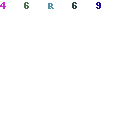Taitt receives NSF grant to preserve Anishinaabe language and culture

Pictured above are English professor and IRIS Co-Director Kristine Hildebrandt, senior Alex Taitt and Anthropology professor Cory Willmott. Photo courtesy of Willmott.
Senior anthropology and computer science major Alex Taitt has received a National Science Foundation grant to preserve the language and culture of the Anishinaabe peoples through computer databases.
Taitt said she is looking forward to the grant research which involves anthropology, computer science and language.
“It’s very exciting and unexpected but it’s a great opportunity to be able to take my research to the next level and make the most out of it,” Taitt said. “Getting the grant is solidifying what I want to do.”
The grant, funded by the Research Experiences for Undergraduate Students (REU) program, allowed Taitt to travel to Canada to conduct interviews with two Native American beadwork artists in their own Anishinaabe language. The grant also enabled Taitt to present a paper at the conference of the Great Lakes Research Alliance for the Study of Aboriginal Culture (GRASAC), an international consortium of scholars, museum professionals and aboriginal peoples.
The NSF grant came through a collaboration with English professor and IRIS Center co-director Kristine Hildebrandt and anthropology professor Cory Willmott. Through GRASAC, of which Willmott is a founding and board member, Taitt was able to collaborate with Anishinaabe language professors Mary Ann Corbiere and Alan Corbiere to locate first language Anishinaabe beadworkers, to conduct the interviews in the Anishinaabe language and to produce English translations.
Through an SIUE URCA Associateship grant, Taitt will analyze the interview data, enter video and audio clips into a database designed and maintained by GRASAC, and present her findings at an anthropology conference in the spring of 2015.
According to Taitt, who is also president of the Anthropology Club, she plans to go to graduate school to further the language project, figure out ways to better preserve Anishinaabe language and culture and make the tools that she develops more accessible to people.
Willmott said that through computer science, information about vulnerable or endangered languages can be distributed more widely and can even be preserved through relational databases.
“By using segments of natural speech, Taitt’s project takes linguistic databases beyond being mere dictionaries to moving towards a capacity for conversational language instruction,” Willmott said.
Willmott added that the project connects Taitt to the international network of professionals in the GRASAC membership.
“She is now working hand in hand with recognized experts in the fields she wants to enter,” Willmott said.
Taitt said the broader impact is when she goes into graduate studies and continues to work in communities developing these types of tools.
Hildebrandt said that through projects like these, seemingly disparate fields could benefit from one another.
“Computer science needs anthropology.” Hildebrandt said. “The relationship is a two-way relationship. Through these projects computer science becomes relevant and interesting and useful in ways outside of its narrow focus of programming.”
Taitt said the project is an important cause to pursue.
“The language itself is at risk of becoming endangered,” Taitt said. “These methods I use for this language can be potentially used for many other languages that are more endangered.”
According to Hildebrandt, Taitt’s endeavor is an example of the excellence in scholarship that SIUE students can achieve.
“Don’t be afraid to take risks in your academic career and don’t be afraid to look for connections in fields that are different and that generate your interest,” Hildebrandt said. “Seek out faculty to make those connections. “
Willmott said Taitt has done well to take advantage of faculty as mentors.
“She is totally solid, reliable and awesome,” Willmott said. “It really has been a thrill and one of the highlights of my career is to have Alex as a student. “
Filed Under: Anthropology • English Language & Lit












